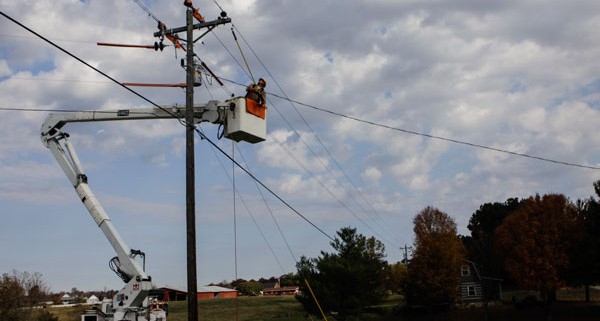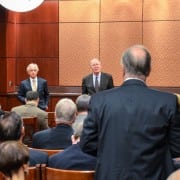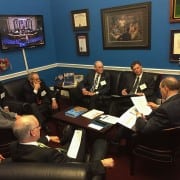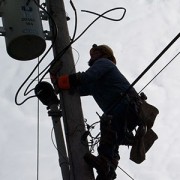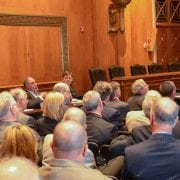Freedom to Connect Act will hurt Tennesseans
The Tennessee Electric Cooperative Association and the electric cooperatives of Tennessee oppose the cable lobby’s Freedom to Connect Act and support the Watson/Matlock bill (HB 1111/SB 1222), a true compromise and attempt to end ongoing legislative disputes.
The Freedom to Connect Act (HB 567/SB 1049) will hurt rural Tennesseans
The primary purpose of the Freedom to Connect Act is to lower the pole attachment cost to cable companies, increasing their net profit and value to shareholders. This bill will take millions of dollars each year from the pockets of rural Tennesseans and give it to out-of-state corporations.
The Freedom to Connect Act
- deletes an existing law requiring cable companies to seek permission to use an electric utility’s property
- takes the authority over a cooperative’s private property away from locally elected boards and gives it to an Administrative Law Judge (ALJ) with limited understanding of the cooperative’s business, finances or membership
- specifically instructs the ALJs to consider the $7 Federal Communications Commission rate established in 1978, but it does not require any other rate formulation to be considered
Passage of the Freedom to Connect Act would result in increased electric bills across Tennessee.
Tennessee’s electric cooperatives are not-for-profit, member-owned, private utilities. Pole attachment rates in Tennessee are set by local boards and are based on actual costs. Rates vary from co-op to co-op because they are set to recover the actual costs incurred, and the cost structure of each utility is different, with varying costs of capital, labor and materials.
The FCC rate was established to help cable companies grow, and it does not reflect actual costs. The rate applies only to for-profit utilities; not-for-profit cooperatives have always been exempt. The Tennessee Valley Authority regulates many aspects of electric co-ops at the federal level, including pole attachment rates.
The average cost of a pole attachment in Tennessee is $14 per pole annually.
Lower pole attachment rates found in other states are legally mandated and do not reflect the actual cost of the attachment. These rates are subsidized by electric ratepayers.
Cooperatives in Tennessee have more than 1 million telecom and cable attachments on their poles. Forcing electric utilities to use the subsidized FCC rate for all attachments would cost electric cooperative members $13 million annually.
Electric cooperatives support a true compromise, reflected in the Watson/Matlock bill (HB 1111/SB 1222)
The Watson/Matlock bill is based on good-faith efforts to compromise with cable in the past. The bill preserves a cooperative’s authority over its own property while giving attachers a clearly defined dispute resolution process and protection against legitimate abuse.
The compromise seeks to
- develop better working relationships between pole owners and attachers and establish a set of best practices
- provide a clear path for dispute resolution while respecting the important role of local control and local decision making
- establish a first-ever avenue for judicial review of disputes
- provide for the involvement of an Administrative Law Judge early in the process to make a determination of the maximum appropriate cost-based rate applicable to each utility. The local board’s final decision is then appealable to Chancery Court under the Administrative Procedures Act. A dispute resolution process has been previously unavailable.
Tennessee’s electric cooperatives support our rural communities, and we believe that broadband expansion is important to the economic prosperity of rural Tennessee.
Pole attachment rates do not stand in the way of broadband expansion. Legislation passed in 2008 requires Tennessee utilities to provide a significantly reduced attachment rate to providers expanding broadband into previously unserved areas. This rate has never been requested or utilized by a cable company in Tennessee. The rate is half of the 2008 rate, which averages less than $7 per pole, per year.
We are active in economic development, working with TVA, the Department of Economic and Community Development, regional economic development groups and local chambers of commerce to recruit jobs and investment to our communities.
Just as electricity did in the 1930s, we believe that broadband infrastructure will make rural America competitive and relevant in a global economy. Tennessee co-ops have provided mapping data and other resources to accelerate the expansion of broadband in Tennessee.
The Tennessee Electric Cooperative Association is a trade association representing the interests of Tennessee’s 23 rural and suburban, not-for-profit electric distribution cooperatives and the 1.1 million members they serve.

